Ruth Negga Takes Center Stage
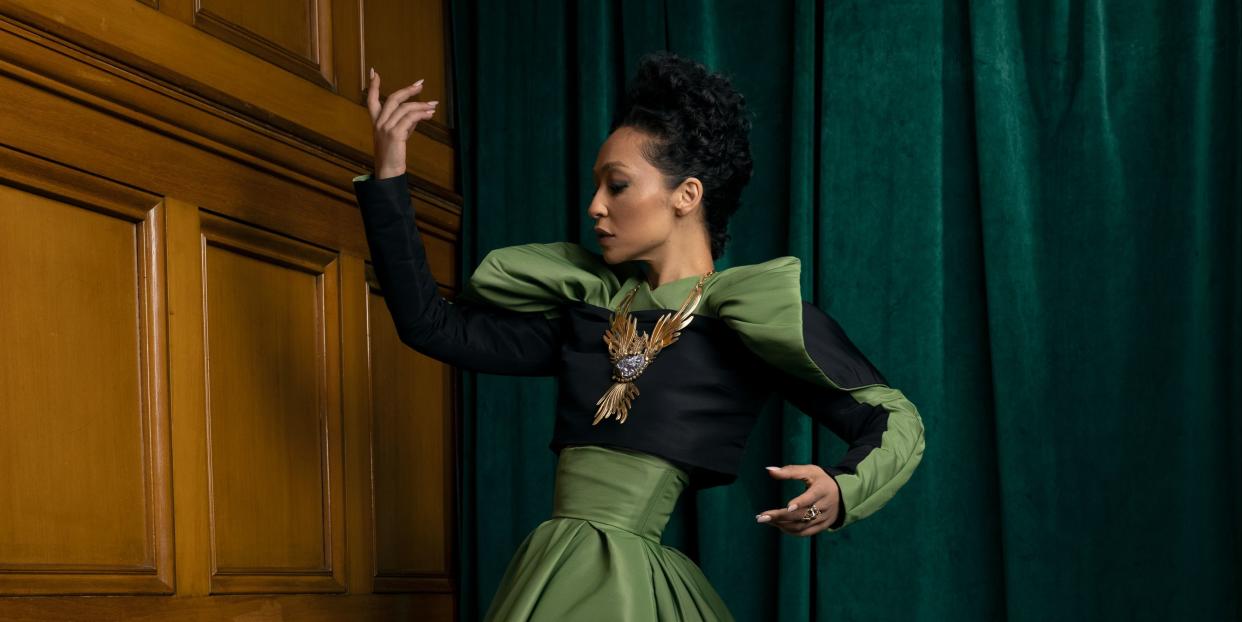
- Oops!Something went wrong.Please try again later.
- Oops!Something went wrong.Please try again later.
"Hearst Magazines and Yahoo may earn commission or revenue on some items through the links below."
“We assume because something has been done many times that it has been done every possible way,” Ruth Negga says. “I don’t know if that’s necessarily true.”
We’re speaking here of Lady Macbeth. No character has ever earned quite so much bad press. Her name has become synonymous with every insult you could level at a woman near a man in power. And right now, as the world navigates Shakespearean levels of threat, the Macbeths’ story of power, ambition, and regicide has never felt more vital. (Or ubiquitous: In recent months Joel Coen delivered The Tragedy of Macbeth, starring Frances McDormand, and a stage version starring Saoirse Ronan stunned London.)
Before Negga’s move into Glamis Castle—or, more precisely, Broadway’s Longacre Theatre, where she’ll star opposite Daniel Craig as the much-maligned character in director Sam Gold’s production of Macbeth, beginning in late March—she escaped from cold England and went to Los Angeles, and today she’s wrapped in a gray cardigan, almost as if the chill of my London flat were beaming through her computer screen. Over the last few weeks she has been enjoying what she calls “time to gently refill and refuel” before she begins what is sure to be one of the most challenging roles of her career.
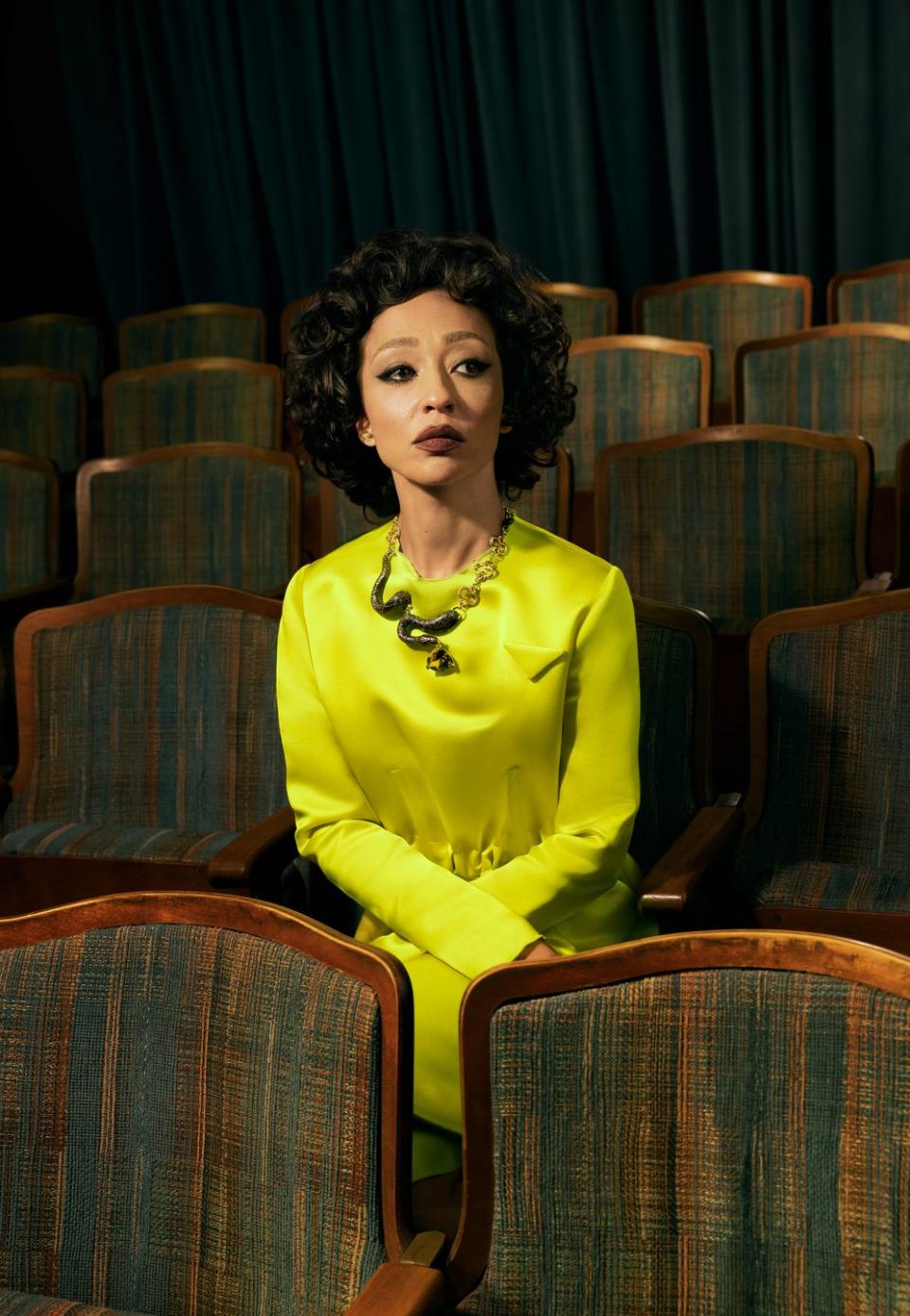
In Shakespeare’s tragedy, Lady Macbeth has long been interpreted as the ultimate avatar of evil; Macbeth is a tragic hero, and she’s the snake whispering in his ear. Over the years, however, the world has been wising up to a more multifaceted understanding of her, thanks to performances by the likes of Marion Cotillard, Sarah Siddons, and Isuzu Yamada that portray a bereaved noblewoman seeking glorious purpose for herself in a male-dominated world.
Still, the question lingers: How will Negga make the character her own? When we first spoke about the part, she was coy on the subject, which is understandable, given that she had never before read the play. Months later she must have a clearer idea of how she’ll realize Lady Macbeth onstage. “What am I doing?” Negga responds. We’re talking right before she begins rehearsals, so I assume she’s joking. She’s not. “I’ve had so much time to think about this character, from all angles, that sometimes my perspective gets blurry,” she says. “Where’s all the work? I just hope it’s in there.”
Negga hasn’t entered this process with her eyes closed. A self-described “magpie,” she has built a nest of ideas and information that will help her find her way into Lady Macbeth’s complexities, though she has so far avoided watching any Macbeth films out of fear of undue influence. She says she’s paralyzed with the timeless actor worry of “dying onstage.” Still, that fear is driving her forward. “There comes a point when I’m terrified to let go, and yet it’s only when I surrender that the good shit happens,” she says. “If you weren’t scared, you’d be bonkers. It is scary, propelling oneself into the unknown. What you’re also doing is making yourself a target.”
It’s hard to imagine Negga having performance anxiety. She’s been praised as much for playing the unruly Tulip O’Hare in the TV series Preacher as for her Oscar-nominated performance in Loving and stage turn as Hamlet. She reliably brings feeling and depth to every job—an intuitive actor who is enigmatic but relatable. Ask her collaborators and they credit not only her talent but her work ethic. “Working with Ruth was as near to the idealized version of working with an actor, as a director, as I’ve ever imagined,” says Rebecca Hall, who directed Negga in the 2021 period drama Passing. “She engaged with the material from both an intellectual and instinctive place, which left me surprised and inspired daily.”
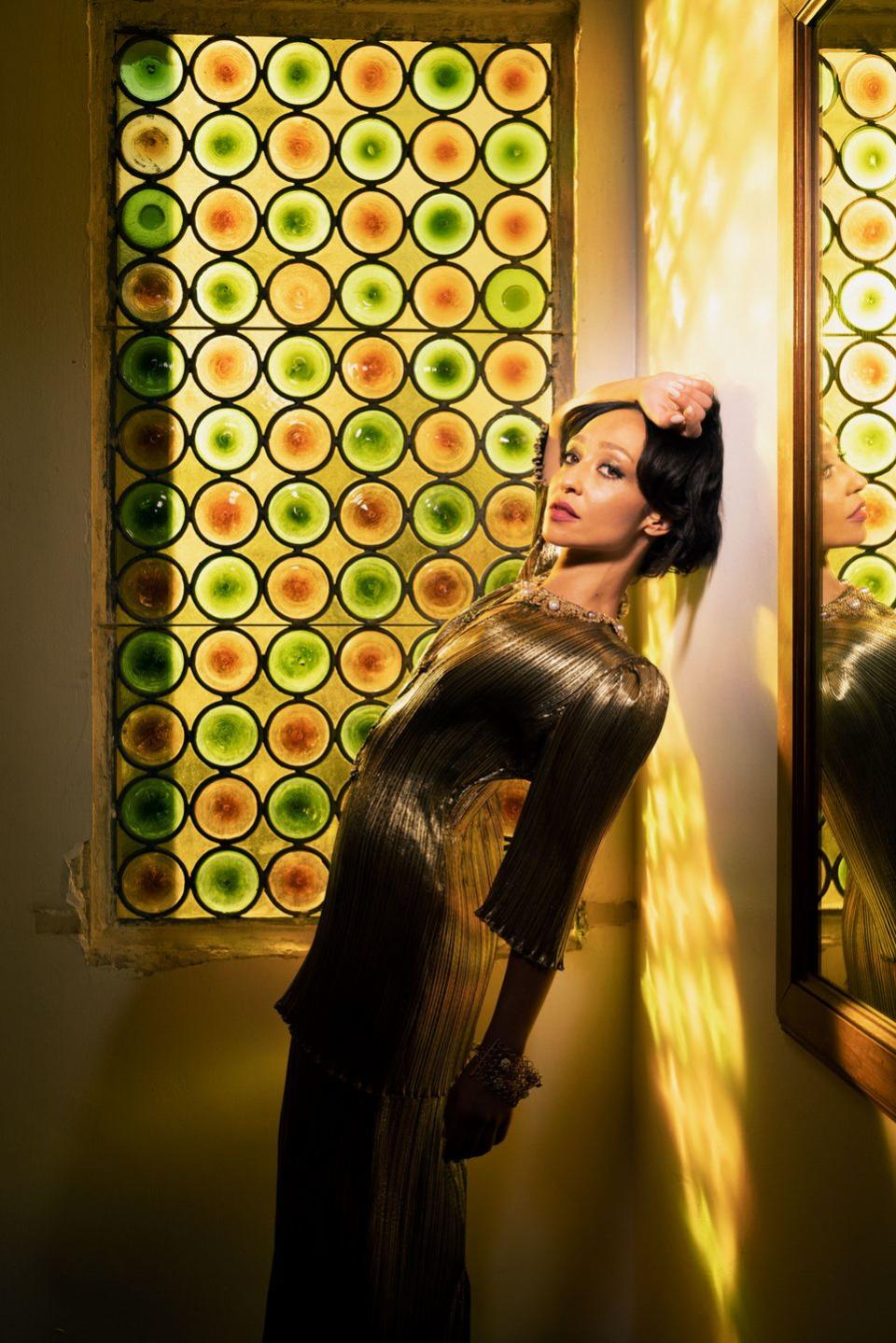
Yaël Farber, who directed Negga in Hamlet on stages in Dublin and New York, calls her “wickedly funny, unflinchingly honest, and deeply spiritual. She is uncompromising in her search for the character.” Before playing the eponymous Danish prince, Negga starred as his lover Ophelia in a 2010 National Theatre production in London (which the Times described as “sweetly punkish”) and as Lavinia in a 2005 staging of Titus Andronicus. Farber points to a “unique combination of capacities” that makes Negga suited to the Bard’s storytelling. “She has an urgent understanding of stakes,” the director says, adding that “she drops the verse like she was born to it.”
Negga says the work she did with Farber developing Hamlet has been invaluable to tackling Lady Macbeth. “Intimacy is so present in what Hamlet has with himself, but in Macbeth it’s with the two of them,” she says. “Hamlet is about being alone and adrift. In Macbeth this partnership is like chainlink armor.”
Negga was born in 1982 in Addis Ababa, Ethiopia, to an Irish mother and an Ethiopian father, who died when she was seven. She grew up in Limerick, Ireland, and Southeast London, and her love for acting developed thanks to her mother’s enthusiasm for theater. “I don’t know if my mum wanted me to make a living as an actor, but she didn’t seem anxious about it, and that’s amazing to me,” Negga says. “I love the theater, but she loves it.”
After majoring in theater studies at Trinity College, Dublin, and graduating in 2002, Negga racked up numerous credits in film and TV, but the performances that truly stand out are those in which she’s most defiant: as civil rights icon Mildred Loving, whose interracial marriage changed American constitutional history, Passing’s Clare, a biracial Black woman passing for white, and the voice for the late punk icon Poly Styrene—who was similarly of Scottish-Irish and East African descent—in a recent documentary. “There is a self-possession, a stout integrity about these women that I admire,” she says. “It’s no easy feat advocating for the things you believe in. Especially if they aren’t in step with what’s accepted or acceptable.” They are also, like Negga, straddling the line between Black and white. “You do feel like this binary is so unforgiving,” she says. “There is this no-man’s-land mixed-race people live in.” As a mixed-race woman myself, I can relate. “You’re marooned,” she says. “You feel like your identity is front and center of something that is some sort of abstract argument, and you’re there going, ‘I’m a fucking human being!’ ”
Today Negga is thinking about how contemporary cultural dynamics could be reflected in Macbeth’s 400-year-old power struggle. “Without ambition, where would a lot of people be, especially minorities and marginalized people?” she asks. “Women are constantly not being given their due, they’re constantly having terms like ‘ambitious bitch’ lobbed at them without any interrogation of where that comes from. That’s not to say Lady M isn’t ambitious. The stronger argument is that she is many other things as well as that.” She points to Shakespeare’s eternal need to challenge expectations. “He’s going, ‘Stop trying to simplify everything to these binaries.’ ”
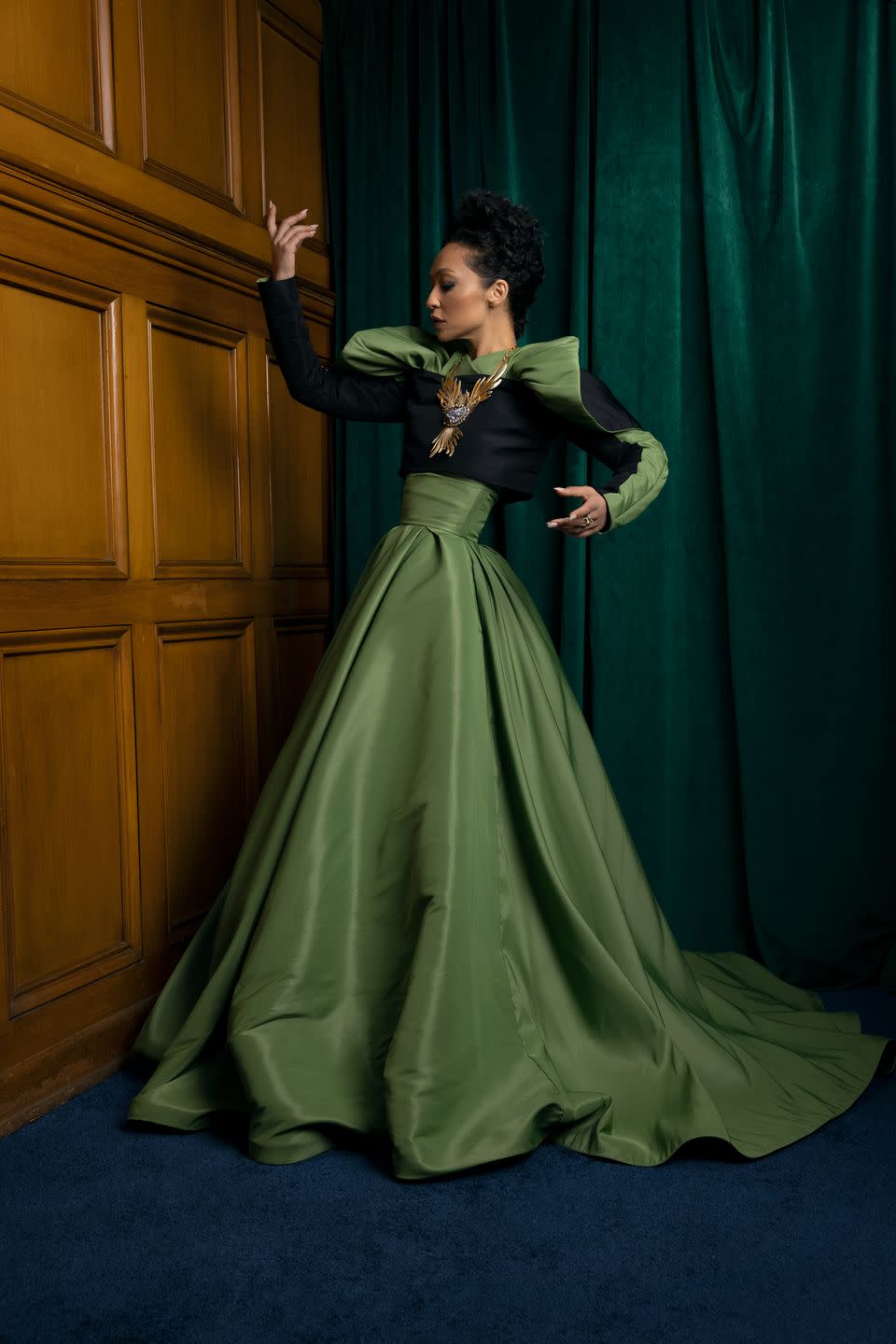
Sam Gold knows his way around Shakespeare, having previously directed Othello (with Daniel Craig as Iago), Hamlet, and King Lear. He realized when he first met Negga over Zoom that she was perfect for his Lady Macbeth in a “brutal, dark, and intimate” production. “Macbeth has way more to say, so how do you balance that and make it feel like it’s a marriage?” Gold asks. “In a way, she’s the more powerful character. You need to have the intelligibility of Ruth so that her character stays in the center of your consciousness.” Keeping characters front and center seems to be Gold’s plan; he’s aiming for a contemporary production that focuses on powerful personalities—played by a cast that includes Grantham Coleman and Maria Dizzia as the Macduffs, Asia Kate Dillon in their Broadway debut as Malcolm, and Amber Gray as Banquo, among others—instead of their trappings.
Craig first met Negga in a hotel, when the two were immediately thrown into a photo shoot. “You meet somebody, are thrust into a studio, and then told to pose with them, but Ruth was very sweet and easygoing,” he recalls. A real connection sparked when the pair and Gold retired to the former 007’s apartment for a dinner of homemade short ribs. “We needed to grab a moment so that we could get our relationship as real as possible,” says Craig, who has long wanted to work with Negga. “She’s got that incredible quality, you can’t take your eyes off her, and she’s powerful in a very complicated way. It’s a gift to have her in the room, to have her energy and her insight.”
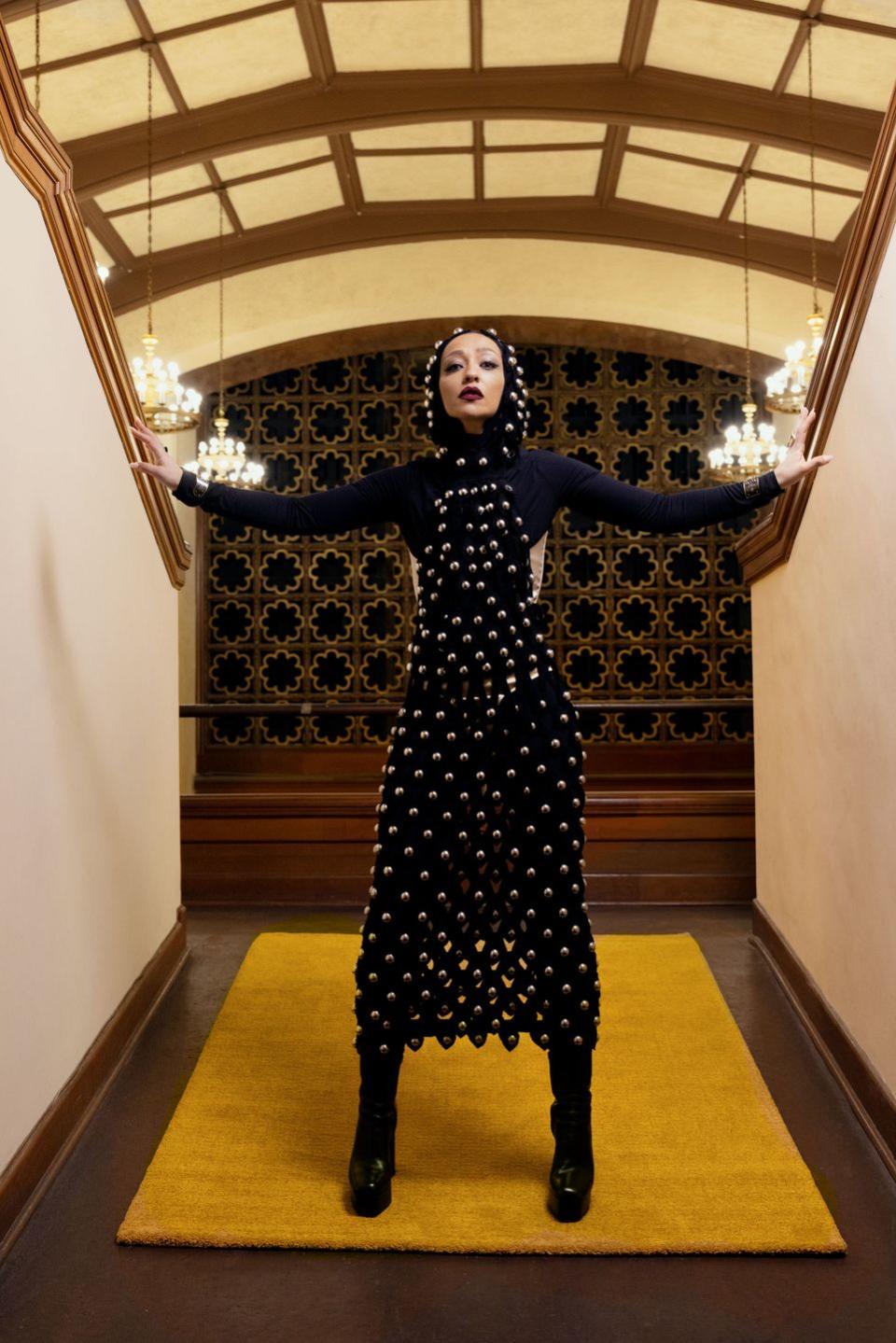
There have been countless adaptations of Macbeth over the years, but the list of women of color who have played Lady Macbeth is very short (including Akiya Henry, Shirley Verrett, and Angela Bassett), and it was imperative that casting Negga not be tokenism. “It’s important for me to work with people who aren’t just excited about the surface attention it will garner,” Negga says. The racial dynamic of her coupling with Craig, which is reverse-mirrored by Coleman and Dizzia as the Macduffs in this color-conscious production, was one of the first things she and Gold discussed, and something she interrogated with dramaturge Ayanna Thompson. “What happens when Lady Macbeth, who is born for power, can, in the world Shakespeare wrote, achieve her power only through her husband?” Gold asks. “Ours is a play in which this powerful Black woman has obstacles to the power she innately should be able to manifest.”
The fact that Shakespeare wrote so few roles for Black women makes the premise that much more interesting, says Kim F. Hall, a professor of English and Africana Studies at Barnard College. “There are no big roles for Black women inherent in Shakespeare, so to have a Black woman play a Shakespeare lead on Broadway is a phenomenal thing,” she says. “There’s something compelling about a politically significant woman who has incredible emotional vulnerability.”
Negga has overcome obstacles on her road to success, but she’s aware of the privilege her work affords. Her platform comes with the ability to select characters (such as her upcoming turn as Josephine Baker) who may have been maligned, misread, or ignored. “It’s about making sure that your desires are in alignment with the legacy that you want to leave,” she says. “The only way I can do that is with the power of saying, ‘What do I want to do as an actor and for myself? How am I being useful to the world?’ ” It’s a question Lady Macbeth doesn’t ask—but might, were she ever given the chance.
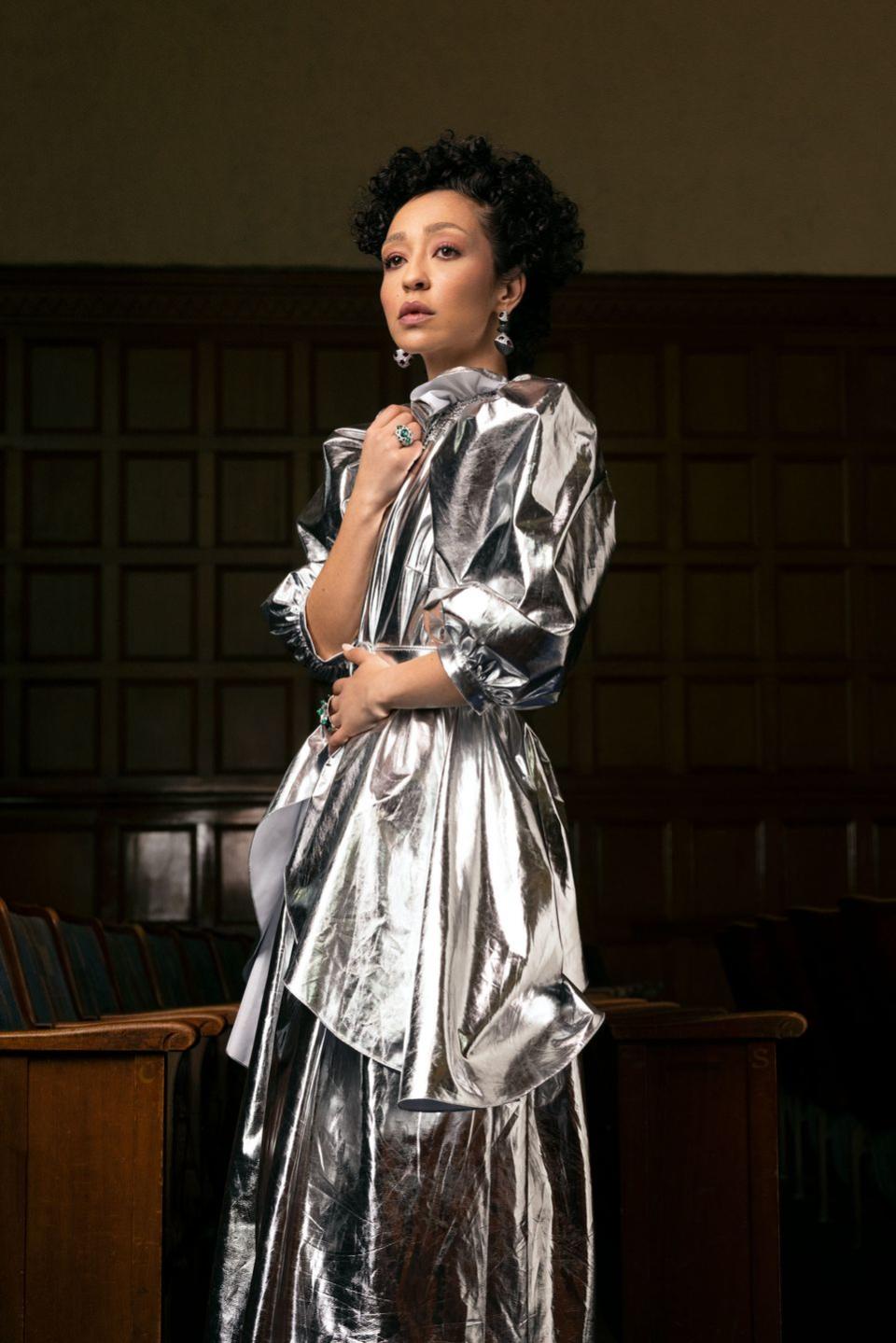
Photography by Djeneba Aduayom. Styled by Oliver Vaughn.
Hair by Araxi Lindsey at a-frame agency. Makeup by Joanna Simkin at the wall group. Set design by Shelley Burgon at the Magnet Agency. Nails by Stephanie Stone at forward artists. Production by Viewfindersla.
In the top image, Negga wears: Christian Siriano cape ($1,200) and skirt ($4,900); New York Vintage vintage headdress; David Yurman cuff; Pomellato rings (from $7,100).
This story appears in the April 2022 issue of Town & Country. SUBSCRIBE NOW
You Might Also Like

